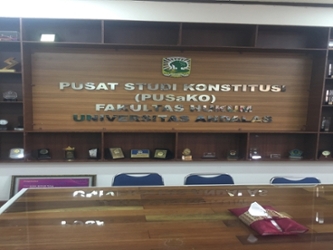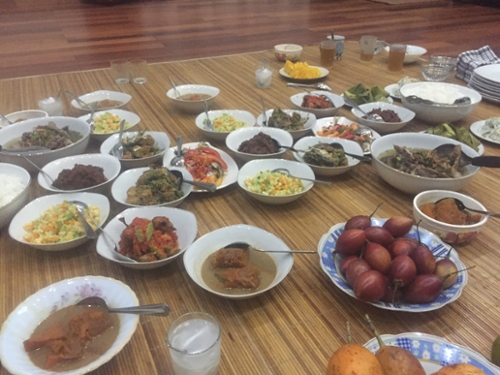Civ Pro in Indonesia
My research in Indonesia is focused on the intersection of Indonesian politics and the Indonesian Constitution. More specifically, my focus is on how the Constitutional Court of Indonesia would, or rather should, rule on a challenge for the result or procedure of a local election. In 1998 Indonesia entered the “reform era”, which included an annual amendment to the 1945 Constitution every year from 1999 to 2002. These four amendments, unlike an amendment to the U.S. Constitution, actually changed the body and text of the original 1945 Constitution to create one, updated document. The third and fourth amendments added a “Constitutional Court” to the Indonesian judicial system and national laws further substantiated it in 2003 and 2011. The Constitutional Court has five main sources of power: 1) “constitutional review”, 2) facilitating a presidential Impeachment process, 3) deciding upon the dissolution of political parties, 4) deciding jurisdictional disputes between state institutions established by the Constitution, and 5) the resolution of electoral disputes. My research is focused on the fifth prong of court power, and through its implementation it has been a unique use of court power. At the end of my three months in Indonesia I will publish an article than analyzes this power in depth.
While the court has not exercised prongs two, three, or four, the first prong includes constitutional review and has been the court’s primary use of authority. Constitutional review allows the court to review national statutes against the amended constitution to determine whether or not the statute violates any constitutional provisions. In many ways it is similar to the function of the U.S. Supreme Court, but there are several key differences that I should note. The first is the difference to establish standing and jurisdiction, which is another blog post in itself. Second, the court can only review national statutes against the Constitution, while lower government regulations are left to the Indonesian Supreme Court for review against national statutes. Finally, a Constitutional Court ruling is given prospective operation and there is no redress for parties that have suffered a constitutional violation, even in criminal cases where the punishment is imprisonment. Understanding the operation of Indonesian courts was a lot like taking Civil Procedure all over again, complicated further by the fact that precedent does not necessarily bind Indonesian courts. The reality is that the Constitutional Court is probably the most progressive body in the Indonesian government, but the rules have been updating since its establishment in 2003.
My research is supported and lead by Pusat Studi Konstitusi (PUSaKO) under the Faculty of Law at Universitas Andalas in Padang. PUSaKO is a research organization within the university focused on studying and reforming the Indonesian Constitution. The current director of PUSaKO, Feri Amsari, is a William & Mary LLM alum. Additionally, I will spend a month in Jakarta working with Constitutional Court Judge, and former PUSaKO director, Prof. Dr. Saldi Isra. Writing an article on the Constitutional Court and having access to Prof. Saldi is the equivalent of writing an article on the U.S. Supreme Court and having weekly conversations with a Supreme Court Justice. I could not be more excited about this opportunity.

Beyond the academic side of things, Feri and Prof. Saldi have been incredible hosts. For someone who is fully experiencing Ramadan for the first time, they have been very accommodating and been willing to answer all of my questions in the friendliest way. Prof. Saldi and his wife, Leslie, invited me to their beautiful home in Padang to break fast on the first night of Ramadan and it was one of the best meals I have ever had. CNN ranks beef rendang, a traditional Indonesian dish, as the best dish in the world. I have had it at least five times since I have been here and nothing compares to Leslie’s. That was in addition to the rest of the spread (seen below). For the time being, food and research are my two main activities and this concludes my second update!
